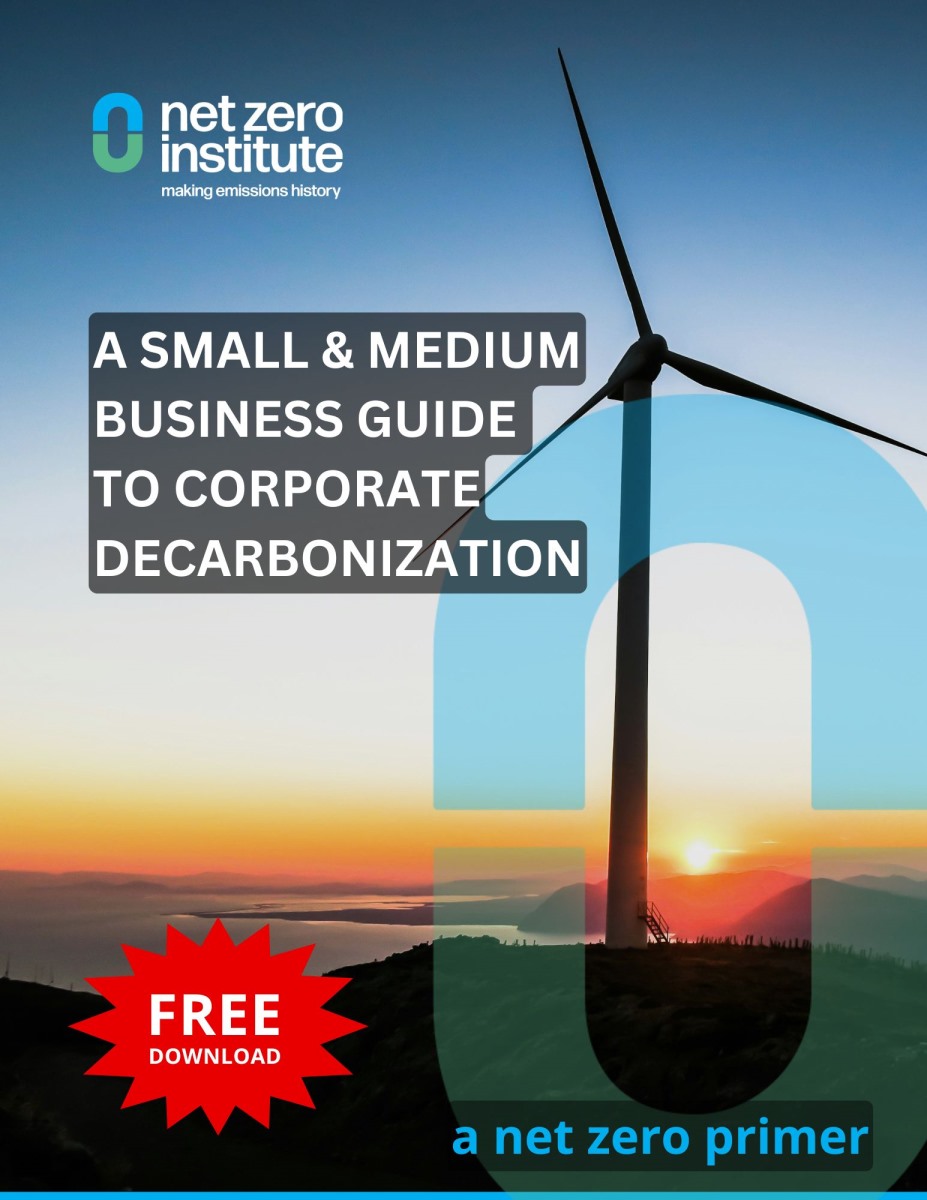What is an Unconference and How Does It Drive Impact for Corporate Climate Leaders?
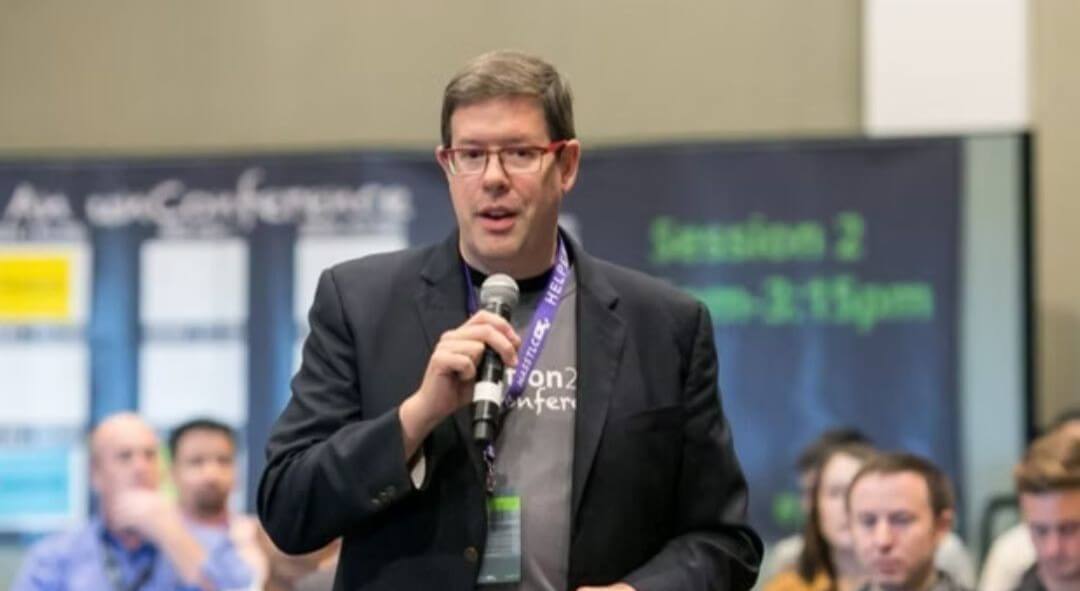 Photo: Net Zero Institute CEO Tom Hopcroft kicking off an unConference Agenda Creation session. Photo credit: Dan Bricklin at the MassTLC Innovation unConference circa 2010.
Photo: Net Zero Institute CEO Tom Hopcroft kicking off an unConference Agenda Creation session. Photo credit: Dan Bricklin at the MassTLC Innovation unConference circa 2010.
In the race to net zero, corporate sustainability leaders often find themselves in a paradoxical position: tasked with transforming entire organizations while working with minimal headcount, expected to drive change with limited resources, and navigating a landscape that evolves faster than traditional conference agendas can keep pace.
If you're nodding your head right now, you're not alone.
The Corporate Sustainability Challenge
The sustainability landscape is changing at breakneck speed with ever changing regulations, stakeholder expectations and technological innovations. Traditional conferences--planned months in advance with preset agendas and canned presentations--simply can't keep up.
Meanwhile, sustainability leaders are expected to:
- Drive transformational change across siloed departments
- Navigate complex regulatory environments
- Manage supply chain decarbonization
- Build compelling business cases
- Communicate effectively to diverse internal and external audiences
- And, do it all with limited resources and support
We don’t need another panel of experts talking at us. Rather, we need a space where we can talk with each other, sharing real challenges and unlocking collective wisdom in real time.
Enter the Unconference: Problem-Solving at the Speed of Business
This is precisely why we've designed the Sustainability 2.0 Summit as an unconference. But what exactly is an unconference, and why is this format gaining such momentum?
An unconference flips the traditional conference model on its head. There's no preset agenda. No endless PowerPoints. No hierarchy between speakers and attendees.
Instead, participants collectively create the agenda on-site, proposing topics that matter to them in the moment.
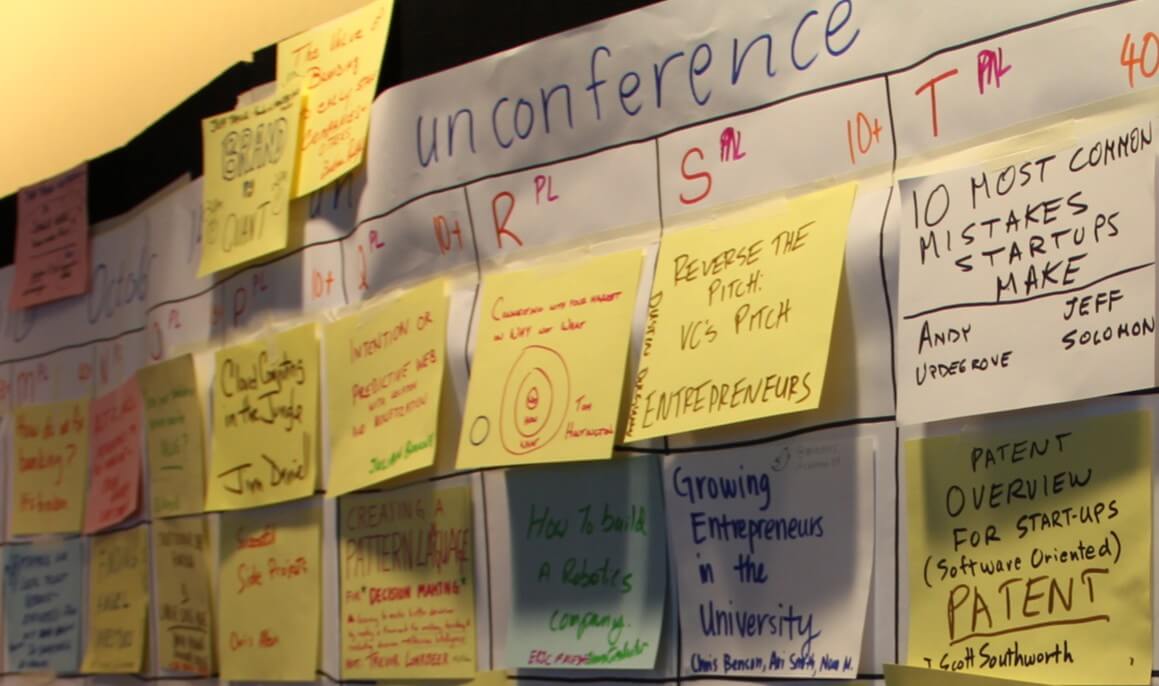
This is done through an Agenda Creation session where participants propose sessions and build the unConference agenda together (see example "agenda wall" image from an innovation and entrepreneurship focused unConference).
Rather than lectures, sessions are conversations among participants where everyone contributes their expertise and questions.
The result? High-energy, high-value exchanges focused on actual challenges, not on whatever topics an event organizer thought would be relevant six months ago.
(Read more about unConferences in this Forbes article: How 'Unconferences' Unleash Innovative Ideas.)
Photo credit: Dan Bricklin at the MassTLC Innovation unConference circa 2010.
How Does an unConference Actually Work?
If you've never experienced an unConference, the format might seem a bit uncertain, which is precisely the point. The sessions are higher energy, more tailored, and more interactive. Here's what to expect:
- You arrive with ideas, not expectations. The day begins with no predetermined agenda—just a community of passionate professionals and some empty time slots on a board.
- The group creates the agenda together. Participants propose topics they want to explore or share knowledge about. These become the sessions for the day.
- You vote with your feet. Following the "Law of Two Feet," participants move freely between sessions, ensuring everyone is giving or getting value at all times.
- Participants are both teacher and student. You might be leading one conversation and learning in the next, a recognition that we all have something valuable to contribute.
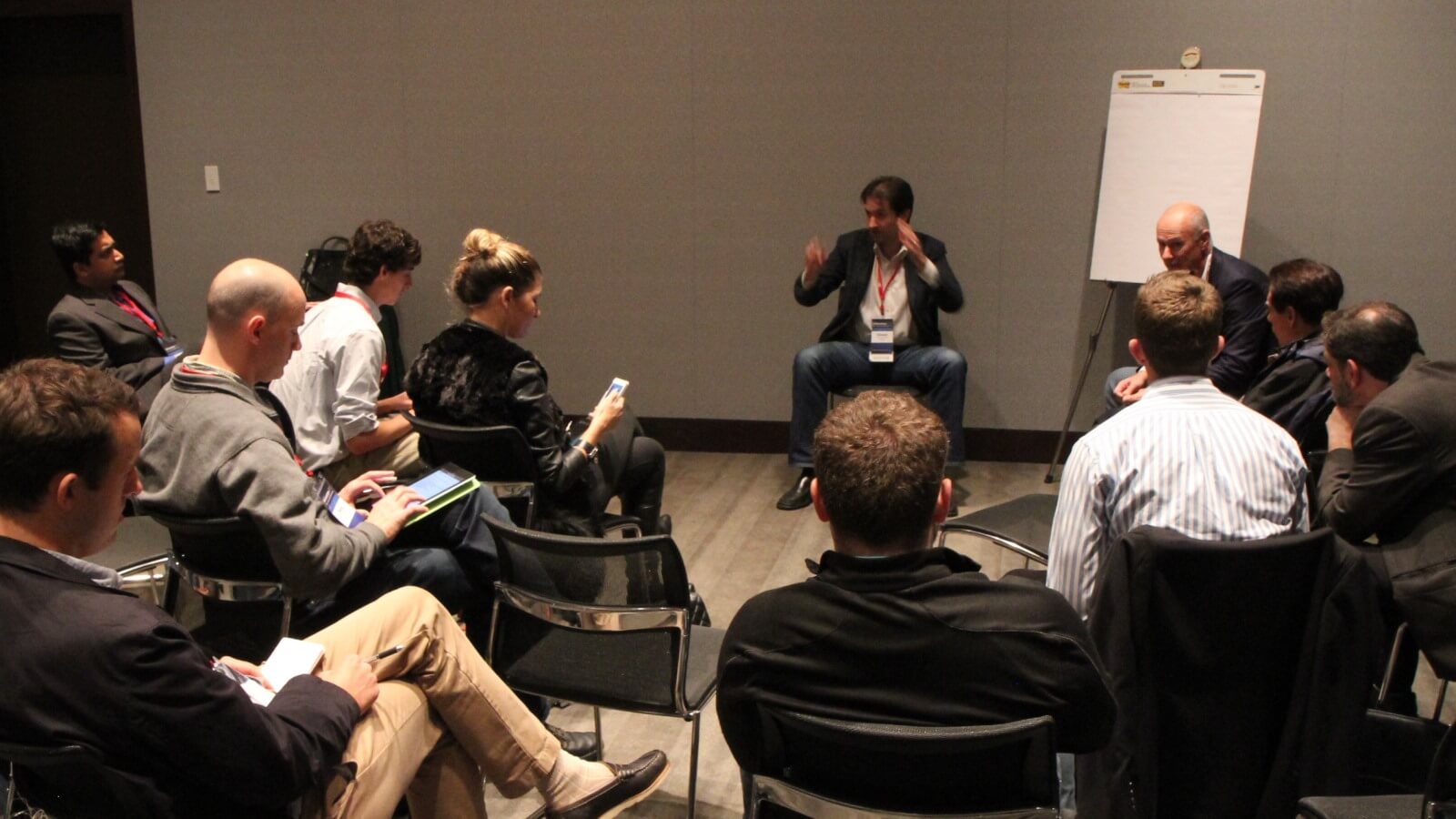
The guiding principles are simple:
- Whoever shows up are the right people
- Whatever happens is the only thing that could have
- Whenever it starts is the right time
- It's over when it's over
These principles foster an environment of openness, collective problem-solving, and genuine connection that traditional conferences simply can't match.
Why This Format Works for Corporate Decarbonization
The challenges of corporate sustainability aren't theoretical--they're practical, specific, and often unique to your organization's context. The unConference format excels for three key reasons:
- It Addresses Your Actual Challenges
Instead of generic presentations on pre-determined topics, you'll tackle the specific issues keeping you up at night--whether that's building a business case for renewable energy procurement, navigating Scope 3 emissions strategies, or fostering cross-functional buy-in. - It Leverages Collective Intelligence
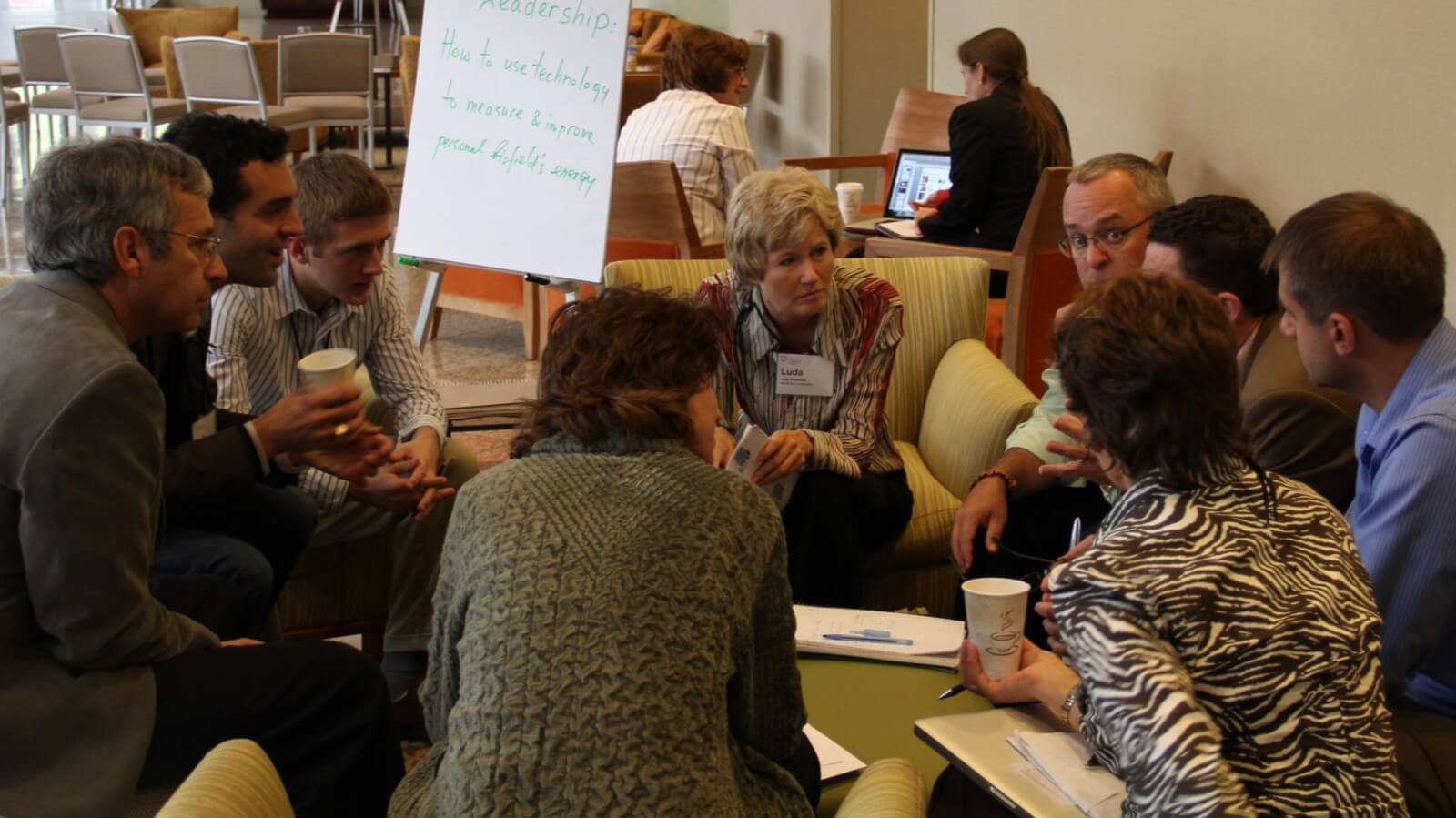 The wisdom needed to solve your challenges likely exists within the room, distributed across different companies, functions, and perspectives. The unConference format efficiently connects you with precisely the people and insights you need.
The wisdom needed to solve your challenges likely exists within the room, distributed across different companies, functions, and perspectives. The unConference format efficiently connects you with precisely the people and insights you need.
Photo credit: Dan Bricklin at the MassTLC Innovation unConference circa 2010. - It Builds Lasting Relationships
Beyond information exchange, you'll develop meaningful connections with peers facing similar challenges, creating a support network that extends far beyond the event itself.
The Sustainability 2.0 Summit: An unConference in Action
On May 22nd in Boston, the Net Zero Institute is bringing together sustainability and other functional leaders involved or interested in sustainability from across industries for the Sustainability 2.0 Summit, an unConference.
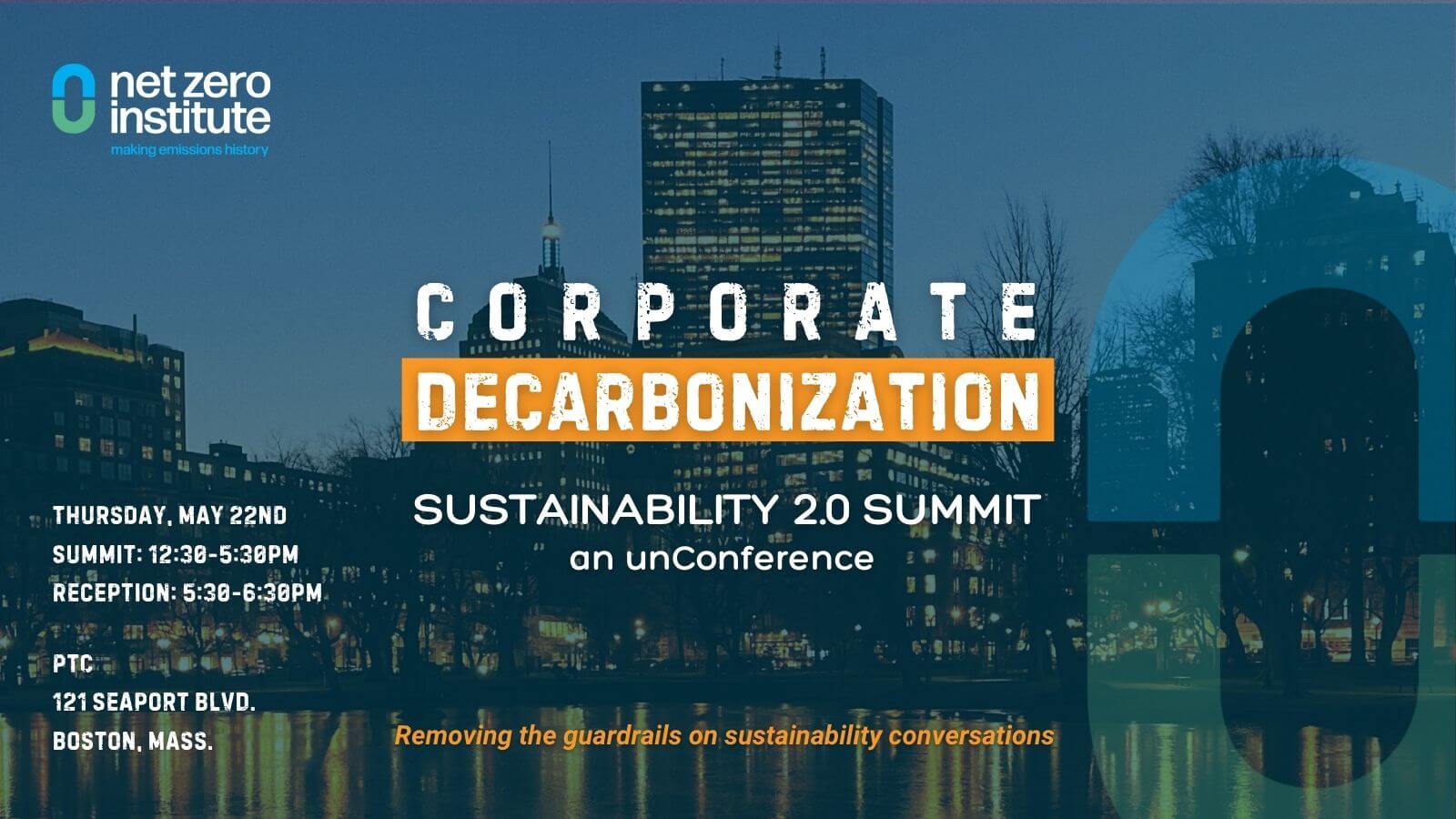 You'll be in exceptional company, with leaders like:
You'll be in exceptional company, with leaders like:
- Mike Mattera, Director, Corporate Sustainability & ESG Officer, Akamai
- Jennifer Dudgeon, Sustainability Director, AspenTech
- Kathleen Woodward, Head of Sustainability, Biogen
- Dave Duncan, Head of Sustainability, PTC
- Reed Bundy, VP, ESG and Employee Experience, Mimecast
- James Horne, Net Zero Practice Lead, Salesforce.com
- Derek Oliver, Head of Sustainability, Waters Corporation
While the specific session topics will emerge on the day, you might expect conversations around:
- Strategy & Implementation: Building winning business cases, integrating climate risk into business strategy, accelerating partner engagement, identifying competitive advantages through sustainability
- Technical & Operational: Scope 3 emissions strategies, renewable energy procurement, carbon accounting practices, operational efficiencies that reduce costs and emissions
- Leadership & Change Management: Building effective green teams, stakeholder engagement, cross-functional collaboration, embedding sustainability into core business strategy
From Attendee to Participant: A New Way to Engage
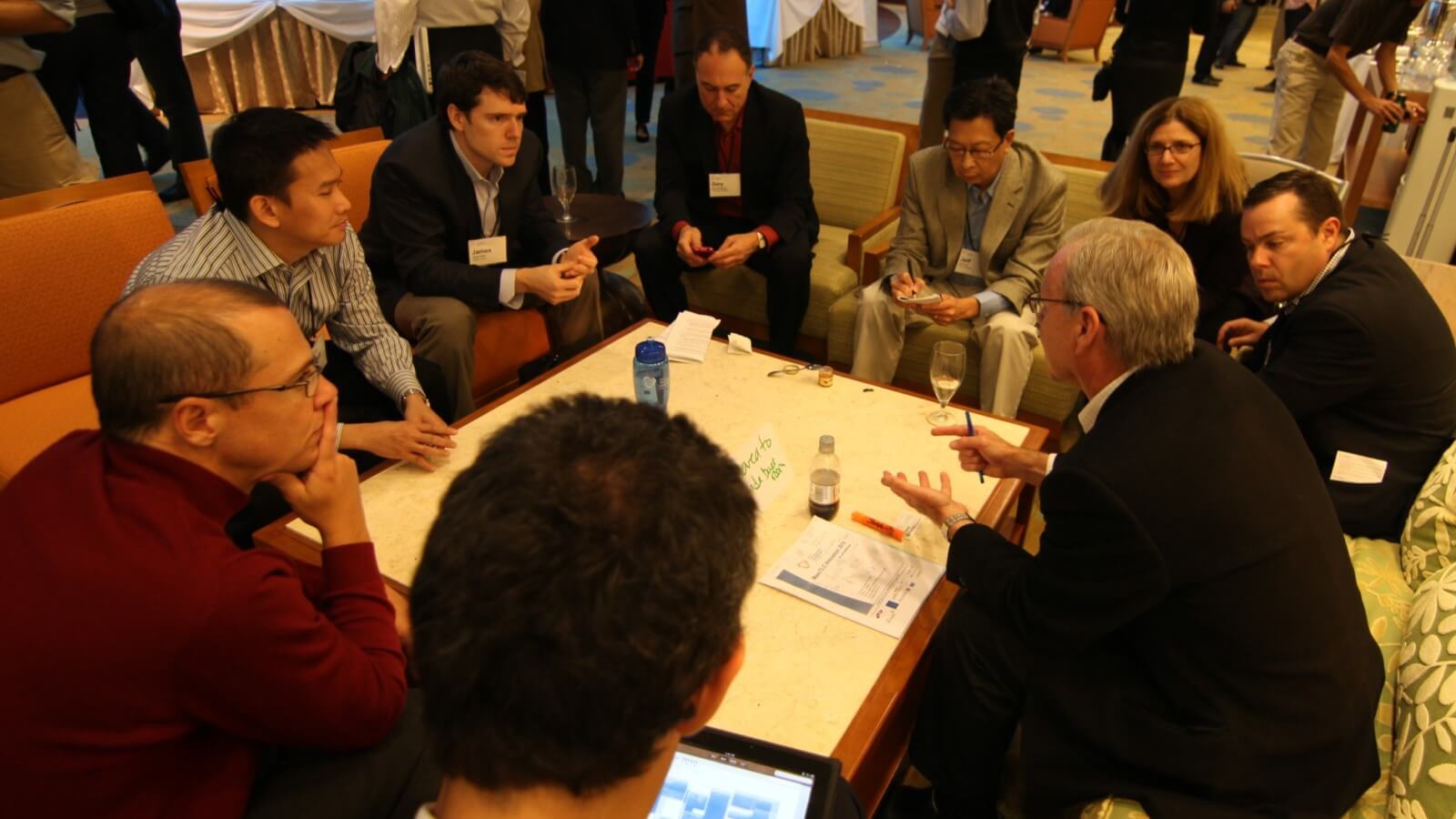 The most profound difference between traditional conferences and unConferences is the shift from being a passive attendee to becoming an engaged participant.
The most profound difference between traditional conferences and unConferences is the shift from being a passive attendee to becoming an engaged participant.
Instead of just consuming information, you'll actively co-create solutions. Instead of networking in brief coffee breaks, you'll collaborate substantively with peers, building relationships based on shared challenges and mutual support.
The difference is tangible: You'll leave with not just notes, but actionable strategies; not just business cards, but meaningful connections; not just inspiration, but a renewed sense of momentum.
Photo credit: Dan Bricklin at the MassTLC Innovation unConference circa 2010.
Join the Movement
The climate clock is ticking, and the corporate world needs to move faster. Traditional learning formats simply can't keep pace with the rapidly evolving sustainability landscape.
By participating in the Sustainability 2.0 Summit on May 22nd, you're not just attending another event—you're joining a movement of leaders committed to accelerating corporate decarbonization through collective action and shared wisdom.
Whether you're navigating regulations, aligning stakeholders, building a business case for sustainability initiatives, or integrating climate action into your core business strategy, this unConference will connect you with the insights and relationships you need to drive progress.
The question isn't whether you can afford to spend the afternoon at this unconference--it's whether your sustainability initiatives can afford for you not to.
Register now for the Sustainability 2.0 Summit, taking place on May 22nd, 2025, at PTC, 121 Seaport Boulevard, Boston.

